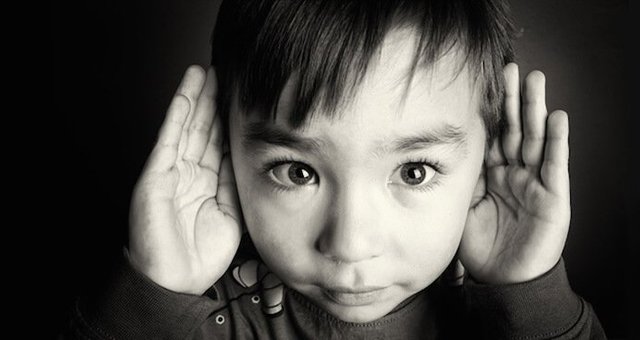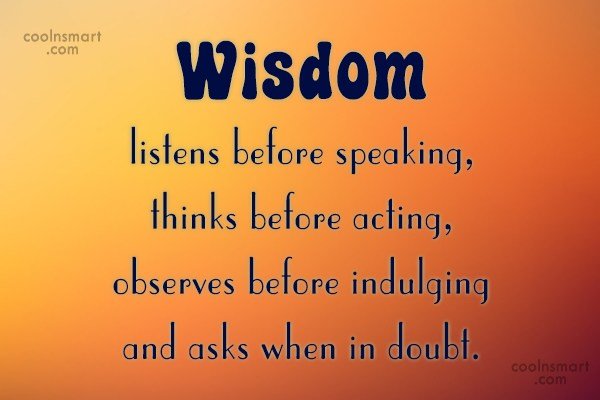Mastering The Art of Speaking and Listening
Mastering The Art of Speaking and Listening

Image Source
There are two sides to each discussion, and both are basic to the craft of correspondence. All in all, how are your discussion abilities? Consider it: Are you a smooth talker, or do you meander? Is it accurate to say that you are a mindful listener, or do you tend to interfere?
Here's the way to ace the specialty of discussion—both sides of it:
At the point when it's your time to speak
Get your reasoning straight
The most well-known wellspring of confounding messages is jumbled considering. We have a thought we haven't thoroughly considered. Or, on the other hand we have so much we need to state that we can't in any way, shape or form say it. Or, on the other hand we have an assessment that is so solid we can't keep it in. Subsequently, we are not well arranged when we speak, and we befuddle everyone. The main manage of plain talk, then, is to think before you say anything. Compose your considerations.
Say what you mean
Say precisely what you mean.
Get to the point
Powerful communicators don't avoid the real issue. In the event that you need something, request it. On the off chance that you need someone to accomplish something, say precisely what you need done.
Be brief
Try not to waste words. Perplexity develops in direct extent to the quantity of words utilized. Speak doubtlessly and quickly, utilizing the briefest, most well-known words.
Be genuine
Each of us has an identity—a mixing of attributes, thought examples and quirks—which can help us in conveying obviously. For greatest lucidity, be regular and let the genuine you come through. You'll be all the more persuading and significantly more agreeable.
Speak in illustration.
The buzzword that "words usually can't do a picture justice" isn't generally valid. In any case, words that help individuals envision ideas can be enormous guides in conveying a message.
In any case, talking, or sending messages, is just a large portion of the procedure. To be a genuinely fulfilled communicator, you should likewise know how to listen, or get messages.
In case you're moving toward a railroad crossing around a visually impaired bend, you can communicate something specific with your auto horn. In any case, that is not the most imperative piece of your correspondence errand. The correspondence that tallies happens when you stop, look and listen—a valuable counsel for discussion, as well.

Image Source
At the point when it your time to listen
Do it with thought and care
Listening, such as speaking and composing, requires certifiable intrigue and consideration. In the event that you don't focus on listening, you won't learn much, and you won't recollect quite a bit of what you do realize. A large portion of us hold just 25 percent of what we listen—so on the off chance that you can expand your maintenance and your appreciation, you can build your viability.
Use your eyes
In the event that you listen just with your ears, you're passing up a great opportunity for a significant part of the message. Great listeners keep their eyes open while listening. Search for emotions. The face is a persuasive correspondence medium—figure out how to peruse its messages. While the speaker is conveying a verbal message, the face can state, "I'm not kidding," "Simply joking," "It torments me to disclose to you this," or "This gives me incredible joy."
Observe these nonverbal signs when listening to individuals
a. Rubbing one eye. When you listen "I figure you're correct," and the speaker is rubbing one eye, figure once more. Rubbing one eye frequently is a flag that the speaker is experiencing difficulty deep down tolerating something.
b. Tapping feet. At the point when an announcement is joined by foot-tapping, it for the most part shows an absence of trust in what is being said.
c. Rubbing fingers. When you see the thumb and pointer rubbing together, it frequently implies that the speaker is keeping something down.
d. Staring and blinking. When you see the other individual staring at the roof and blinking quickly, the current theme is under thought.
e. Crooked smiles. Most real grins are symmetrical. Furthermore, most outward appearances are momentary. On the off chance that a grin is recognizably screwy, you're likely taking a gander at a fake one.
f. Eyes that keep away from contact. Poor eye contact can be an indication of low confidence, yet it can likewise demonstrate that the speaker is not being honest.
It is hasty to settle on a choice construct exclusively with respect to these noticeable signs. Yet, they can give you important tips on the sort of things to ask and the sort of answers to be ready for.
Make things simple.
Individuals who are poor listeners will discover few who will come to them with helpful data. Great listeners make it simple on those to whom they need to listen. They make it clear that they're keen on what the other individual needs to state.

Image Source
This is such great information. Learning to listen in a discussion, especially a heated one, has taken me a long time to do. Once I got that down, everything else was easier. As always, mean what you say and say what you mean.
I wrote an entry to my blog about the word creepy. I would really like to hear your input on what I wrote.
Cheers,
Sean
Right, if your having time, just be simple and go straight.
I think that is the best in most if not all cases. But then again I tend to be less in the feeling department and more in the painful truth section.
If you are already a good speaker all you need to do is to understand your surroundings and use your intuition.
What are your thoughts on the MBTI types and their relation to communication?
Il make a post for this.
Awesome. I like to hear other opinions on the subject.
I think my strengths are being genuine and simple. I like to use big words, but as soon as I realize those big words are not properly understood I switch to simple language. Insisting on very educated language is elitism to me and I am not a big fan elitism.
My weaknesses are not being brief and losing my main point due to all the little side notes that I get lost in.
That definition of wisdom is pretty wise ;)
Its good to know that you have your own way of doing it. Adjusting is present all the time as long as you not gone out of space.
Being concise and succinct with points saves time and misunderstanding. Great post! Upvoted.